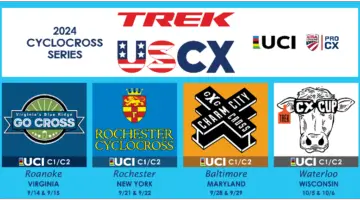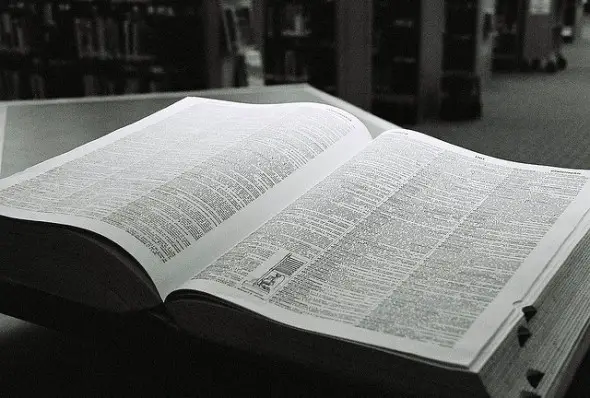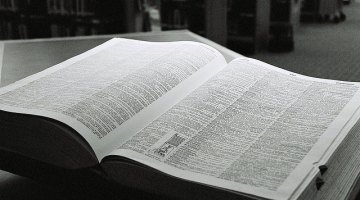Our favorite U.K. columnist David Evans is back, this time to discuss something we’ve been thinking a lot about lately: Flemish. With the surge of Belgians heading to the US for Worlds (we hope!), we’re getting nervous about our abilities to navigate the crowds in Louisville effectively and politely, so David took it upon himself to write us a primer. Just don’t ask us where the restrooms are, because we haven’t gotten that advanced yet.
Hello and welcome to the first installment of Cyclocross Magazine’s Introduction to Flemish, a.k.a. Conversing with Flemings.
There are seats available at the back, but do make sure you can see the board. This first week is mostly an introduction, class, so don’t worry too much about taking down all the notes. When you’re sitting comfortably, I’ll begin.
I’m sure I’m not the first to talk about the Rite of Passage associated with cyclocross fandom: the multi-tabbed search for a pirated feed of a race – customarily alone and at unsociable hours – which yields coverage that is both grainy and intermittent and, when the mud and/or bandwidth gets particularly bad, forces the viewer to make out who-is-who in the race by comparing heights, helmet shapes, pedal strokes, head bobbles, dismounts and other idiosyncratic tells. The commentary for these feeds is unfailingly laconic and unhurried, following the adage that the finer the sports pundit the less hyperbolic and shout-y they tend to be[1], and although unintelligible should act as a welcome pacifier because this feed is liable to be infuriating in the extreme and will seem to be controlled by some sadistic being that is intent on making the picture extra jumpy and unwatchable during an attack or puncture or crash, especially if your preferred rider is involved, doubly so if any of these things happen in the last lap [2]. All of this hardship is what makes the enjoyment of watching the race feel earned, sharpens the excitement, and elevates all the weird and possibly obsessive behavior to the status of Rite of Passage – you wouldn’t do it if you didn’t love it.
The chances are that if you’ve been through any or all of what I’ve mentioned above then you’ve spent at least a few hours of your life listening to Flemish. Or not, seeing ‘Flemish’ as a language doesn’t exist. More on that later. Anyway, if you’ve listened to Flemish and liked it, or if you’re just looking for native-tongued heckles for the Belgians at the Worlds in Kentucky, here’s your chance to learn.
Over the next five weeks we’re going to go through some Flemish phrases, vocabulary, pronunciation and grammar. It’s going to be great, and it’s going to be focused on ’cross. As I said above, we won’t learn much language this week, but I have prepared a little intro for our linguistic journey.
What is Flemish? Well, it’s not a language. When we say ‘Flemish’ we are really referring to a set of Dutch dialects in Northern Belgium (there are too many of these dialects for me to convincingly pretend anyone would ever need to know the differences between them). In fact, what we refer to as Flemish is referred to by the Flemish as Dutch, by virtue of this being an easier and more accurate name. Aside from French loan words, minor variations in pronunciation and some differences in the translation of ‘you,’ Flemish is indistinguishable from Dutch. And it’s not as if what-we-call-Flemish-but-is-actually-just-Dutch is only spoken in Flanders, it’s also spoken in the parts of the Netherlands that line the border[3].
So, what is Flanders? Well, Flanders is a region of Belgium, the other main one being Wallonia, where they speak French[4]. There’s also a tiny part of the eastern edge of Belgium known officially as the German-Speaking Community of Belgium, but we won’t go in to what language they speak there on account if it being self-evident. There are about six million Flemings, and yes, Flemings is the correct word to use when referring to the people of Flanders, although Flandriens is also widely used. If your main motivation for learning a language is communication then your better off with Burmese or Azerbaijani, numbers-wise. Flemings, on the whole, are likely to speak better English than you or I will ever speak Dutch. If this thought demotivates you, just remember that of the last 13 Men’s Cyclocross World Championship titles, a Dutch-speaker has held 11 of them[5], and wouldn’t it be cool to cheer them on in their own tongue?
Please don’t ask me why they speak different languages in different parts of Belgium.
Please don’t.
Please[6].
OK, despite me being almost comically under-qualified to get to the heart of this in any meaningful manner, Belgium is split along historic and unspeakably complicated cultural lines. For a long time the different parts of Belgium belonged to other countries, like the Netherlands or France. I’m being deliberately vague here in the name of brevity, so suffice to say that in 1831 Flanders and Wallonia were hitched together under the reign of Leopold I[7], and the country has had a fairly tumultuous and divisive time of it since[8].
The language divide is a Serious Issue in a country that has quite a long list of Serious Issues. To wit: Belgium has spent much of the last few years without a government to speak of, is being pulled apart by both Flemish- and French-speaking separatists, has seen some fairly serious demographic shifts, and has joined the rest of the EU by increasingly voting for unsavoury far-right types. The whole sorry mess is influenced identity politics that border on tribalism, and an electoral system so insane that it defies even this type of broad brushstroke explanation[9]. I won’t even mention the speculative future-tense stuff of what will happen if Wallonia and Flanders divorce, because even typing the last two paragraphs has made me want to retire to my duvet forthwith.
In 2006, a Belgian TV channel jokingly broadcast a segment about Flanders claiming its independence. It was meant as a kind of what-if social experiment that would spark a serious debate, but the TV channel experienced one major problem: some took it to be real[10]. A politician who condemned those responsible later went on to publicly ponder whether Walloons had the innate mental capacity to learn Dutch[11]. He wasn’t joking. And – again I can feel a headache coming on as I go through this – this guy is half Walloon. He went on to become Prime Minister of Belgium.
The point of mentioning all this is that much of Belgium’s politics is genuinely slapdash and farcical in a way that puts it out of reach of satire.
So, that’s enough history to get your average ‘crosser through most in-pub conversations. Next week we’ll start with some basic greetings and present tense sentences, and talk about the grammatical similarities between Dutch and English.
I think the lunch bell is about to ring.
Suggested reading for this week:
http://www.nytimes.com/2007/07/23/world/europe/23iht-belgium.4.6789277.html
http://www.guardian.co.uk/world/2010/may/09/belgium-flanders-wallonia-french-dutch
http://www.nytimes.com/2008/05/13/world/europe/13iht-belgium.4.12857851.html?pagewanted=all&_r=0
Footnotes:
[1] For example, see pretty much all of Michael Johnson’s athletics punditry at the last Olympics, which is reasoned and calm right up until the moment he is allowed to watch a race ‘off duty’ when he promptly loses his head.
[2] Of course, the feed will be governed by the founding paradox of all internet streaming – i.e., if it works well, it works because not too many people are watching the same stream, but because it works well it will begin to attract more and more viewers until it no longer works well, forcing all the viewers to open other tabs in search of a less popular and therefore more desirable feed, thereby ruining this new feed and … well, I’m sure you can see the cycle that develops.
[3] An anecdote that should help show just how interchangeable Dutch and Flemish are seen to be by actual linguists: Grant & Cutler is a bookshop widely recognized as the best foreign language bookshop in London. I went there as part of my research for this article, hoping to pick up a grammar book or at least a dictionary. Grant & Cutler, bastion of linguistic study, do not hold any books on Flemish in stock. For reference, they hold a wall of Russian books, have three shelves solely for Polish grammar workbooks, an unreadable amount of Nordic fiction, and several reference texts for Romansh, a type of vulgar-Latin spoken natively by just 35,000 people in Switzerland. I asked the attendant about this lack of representation, and he informed me that the one token Flemish book they had kept in stock was dispatched back to the warehouse around the same time that Catalan and Valencian books were amalgamated on to a single shelf with the Galician, Basque and Asturian. He said all this with a type of weary shrug that told me times are tough in the foreign book trade, and Flemish was an unintended casualty of the fight for book sales. He sold me a Dutch grammar book instead.
[4] Although most French people insist that Walloons speak a silly and slightly backwards version of French, the truth is that they’re just being difficult. ‘Walloonian’ and French are even more similar than Flemish/Dutch.
[5] I’m being slightly cheeky by using Dutch-speaking to include Lars Boom and Richard Groenendaal, and conveniently not mentioning the Women’s World Championship, which has only been around since 2000 and has never been won by a Belgian.
[7] Uncle of Britain’s Queen Victoria, and the man who turned down the throne of Greece.
[8] For those of you interested in Belgium’s recent history I can thoroughly recommend leafing through the tome-like Postwar by Tony Judt.
[9] I knew a political scientist who would feign anaphylactic shock to get out of talking about the Belgian electoral system.
[11] Again, I kid you not




























